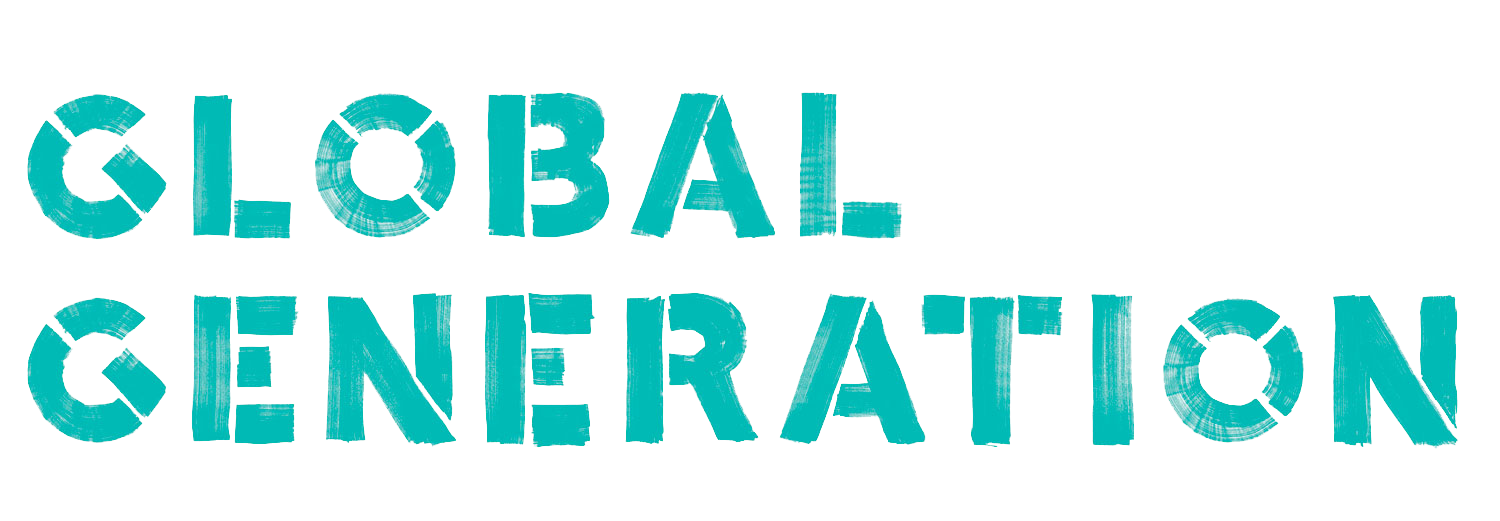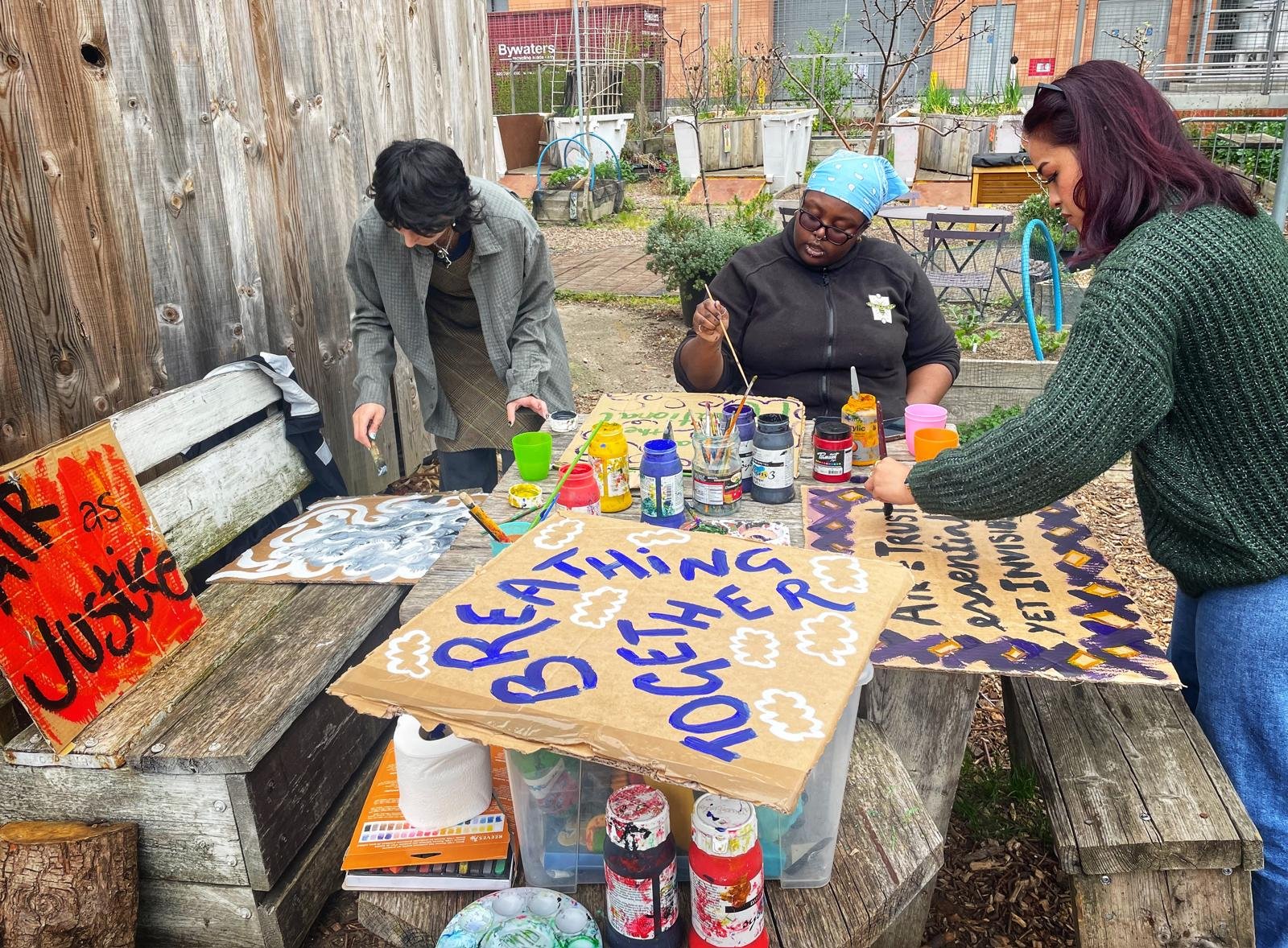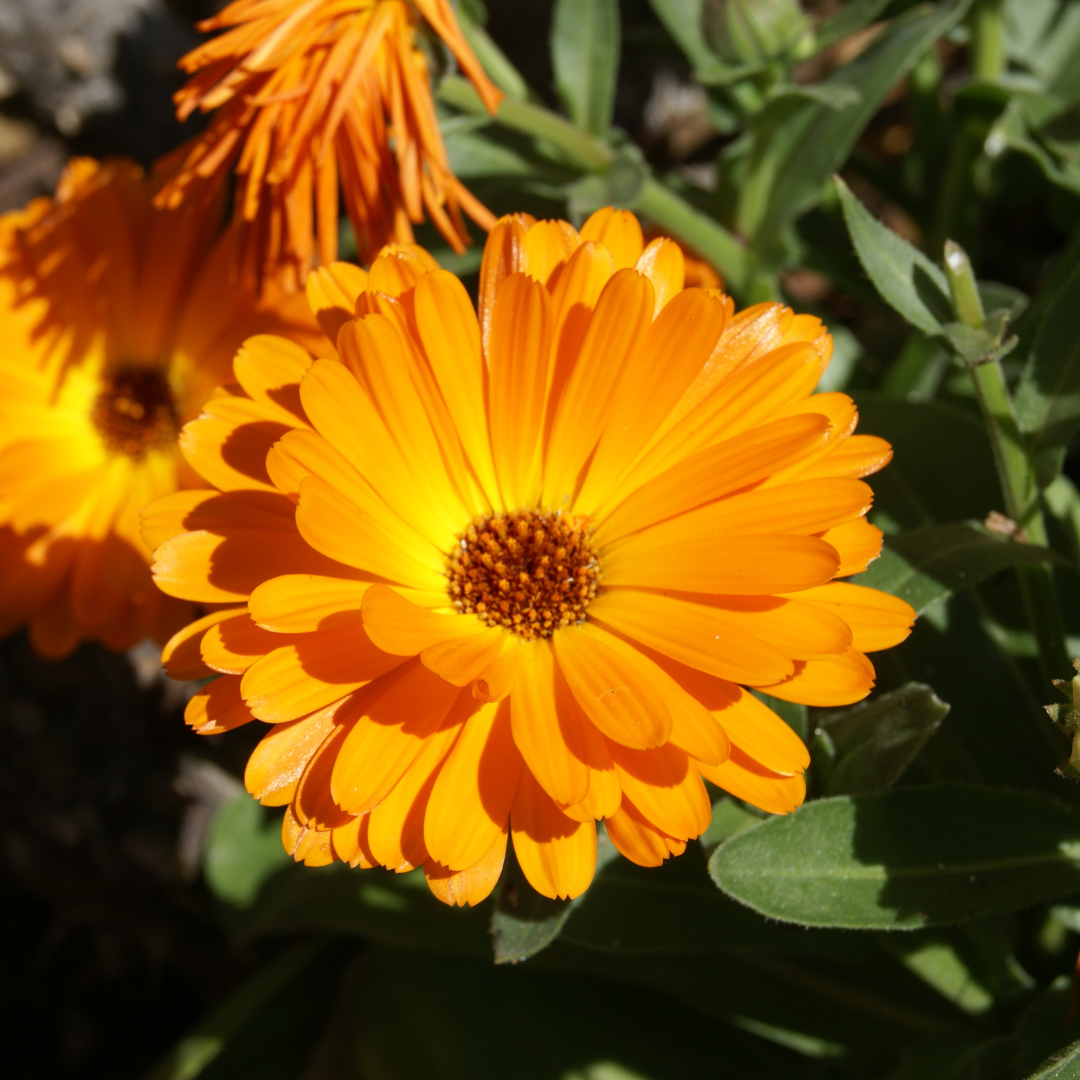VOICES OF THE AIR
Voices of the Air is currently a project that we are dreaming up together with GP and friend Jane Myat. Cassie, Young Fellow, shares why she wants to be involved ...
When I was asked to participate in the Voices of the Air project, it began from the very beginning when I received a call on the 4th of March asking if I was open to doing a video interview on “breathing better in Camden.” One thing about me is that I love being behind the camera (not in a cocky way - I promise, I just find joy in creating something meaningful - and I’ve always loved advocating for the planet). Having past experience in the Voices of the Earth, and later the Voices of the Water project, joining Voices of the Air felt like a natural step forward. It’s also pretty exciting trying to guess what the next “Voices of the [element]” might be, kind of like predicting what Ed Sheeran’s next mathematical symbol will be.
Except this time, I’d be equipped with more knowledge and insight from a more developed perspective. When I joined the Voices of the Earth project, I was in sixth form, about to study Environment and Sustainability at university, and taking part with nothing but a genuine personal interest in the environment. When I joined the Voices of the Water project, I was in my second-to-last year of university, with a growing understanding of how deeply the climate crisis was unfolding, and how it disproportionately affected the Global South - specifically, the Philippines, where I’m from. With Voices of the Air, I joined as a fresh graduate - stepping in with a clearer sense of how even something as invisible and constant as air is deeply political, and not something we can afford to ignore.
The thing about soil and water is that despite technically belonging to no one, they’re treated as commodities - often protected and distributed by those with enough money to afford high-quality access. On a global scale, hotter climates such as the Philippines need more access to safe water because of the higher risk of dehydration, and yet they’re some of the most affected by natural disasters like typhoons, flooding, and drought. And despite fishing being one of their leading industries - contributing to both employment and export - many communities still rely on unsafe drinking water due to damaged infrastructure and ongoing pollution.
This might seem like a harsh comparison, but even in the Global North, in wealthy countries like the United States, clean water isn’t guaranteed. In Flint, Michigan, residents were exposed to dangerous lead levels in their water for years, and trust in public water still hasn’t fully recovered. In Florida, extreme storms have repeatedly led to boil-water advisories, and infrastructure isn’t always built to withstand the climate pressures it now faces. At the same time, we have water companies like Fiji Water selling 500ml bottles for over £1.50 - flown across the world in plastic packaging, while claiming it’s sourced from “untouched” ecosystems. It’s turned hydration into a luxury, while generating a ridiculous amount of plastic waste - all for something that should be a basic human right.
The same goes for land. The Earth isn’t ours to own - it’s a shared space we all live on. But somehow, land has become a status symbol. We live in a world where owning a home is a distant dream for most, and land is hoarded or left unused simply because someone has the paperwork. Companies would rather wave around a land lease contract than actually use the land for good. Local farmers, who try to grow food sustainably, are often in competition with industrial agricultural giants that overexploit the soil, flood the market with mass-produced animal products, and rely on harmful pesticides and chemical fertilisers - all to extract as much as possible from the land for human pleasure and financial gain.
But this is where air becomes a different conversation. The idea of paying for air sounds dystopian - something The Lorax warned us about - but it doesn’t feel that far off anymore. Take London’s ULEZ (Ultra Low Emission Zone), first introduced in 2019. The government claims it's about improving air quality, but many people still report no noticeable difference, and respiratory illness rates remain high. So if the fees are meant to protect us, why are NHS records still showing high numbers of people - especially children - developing breathing issues? Where’s the money going?
Meanwhile, thousands rely on the London Underground every day, where the air is stale and full of dust and iron particles. Yes, being underground means we avoid traffic, but the traffic still exists above - and the cars aren’t going anywhere. We’ve normalised pollution at the cost of convenience. The issue becomes even more complicated when you consider that transport is essential. It gets people from point A to B, keeps businesses running, keeps economies alive. And in the end, we all breathe the same air. But somehow, the people with the most money are allowed to cause the most damage - and get away with it by paying what can only be described as a “sustainability toll.” Take Taylor Swift, for example. In 2022, she was publicly called out as the celebrity with the highest private jet carbon emissions that year - her plane reportedly took over 170 flights in just seven months. Her team responded by saying she “offset” the emissions, which is basically like throwing cash at the problem and expecting nature to forget. It’s almost laughable - as if you can bribe Mother Nature into ignoring our bad behaviour.
Back to my call with Silvia on March 4th - she asked if I could speak in a video interview on behalf of “breathing better in Camden.” It made me think: how have I been breathing recently?
Maybe I wouldn’t notice, because my lungs have been trained to endure a lack of oxygen every Sunday morning during my 15 km runs. But I do remember how it felt when I first started - the burn in my chest, the desperation for fresh air. I think about when I used to work in a GP surgery, reading through patient files and seeing how many people were struggling with respiratory issues. Or when my dad had to be put on a CPAP machine for his sleep apnea. It’s terrifying - the thought of not being able to breathe. To quite literally suffocate.
And I already knew the planet was struggling to breathe too - how trees are overworked trying to absorb our carbon emissions, how birds are forced to breathe in polluted air just to fly. And yet somehow, humans act like we’re immune. Or worse - we don’t care.
To conclude, every aspect of the environment will impact us sooner or later. The thing about paying everything in credit is that our debt will eventually catch up to us. We don’t know won’t know when or where, but we’re definitely getting warning letters through the mail, and yet we’re still choosing to ignore it, until eventually, we’ll have a bailiff show up at our door asking we repay all we owe. A harsh but true reality.
So I joined the Voices of the Air project, knowing that the “air quality” isn’t something from the Lorax but something quite literally in front of our eyes. No one, not even the elite with money, can escape the simple act of breathing.




It’s those cold days in February, where Imbolc has passed with its promises of the upcoming Spring and it’s still just about light when you get home from work but your thermals are still very much in circulation. It’s like when you wait for someone to pass you in a doorway but they also wait and you both go but then jolt to a stop. It’s here but it’s not, not just yet.